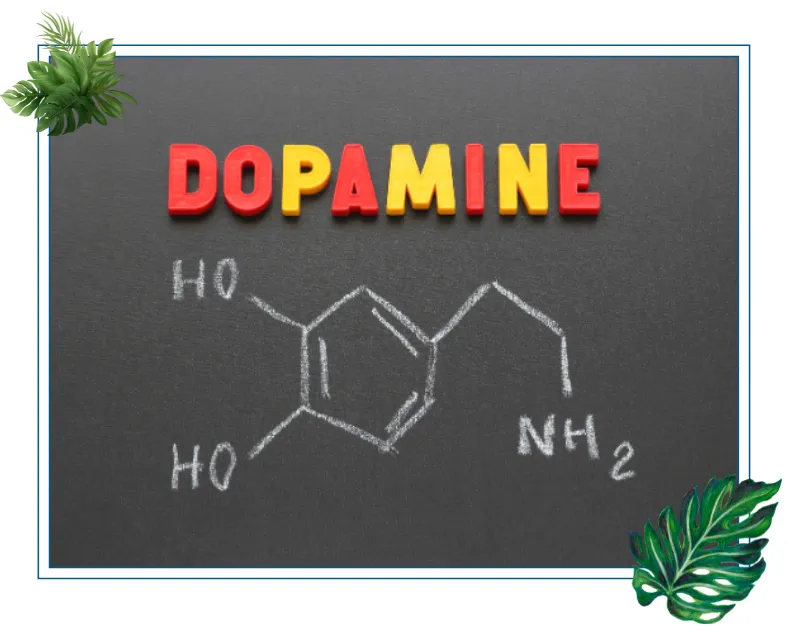ADHD 101
At the core of ADHD’s challenges is how the brain handles neurotransmitters, particularly dopamine. Dopamine is a key chemical involved in motivation, reward, attention, and emotional regulation. In the ADHD brain, there’s often a deficiency or imbalance in how dopamine is produced, transmitted, or received. This imbalance can make it harder for people with ADHD to stay focused, initiate tasks, and regulate their emotions. The brain’s prefrontal cortex, which is responsible for executive function skills like planning, decision-making, and impulse control, relies heavily on dopamine to function effectively. When dopamine levels are low or aren’t being utilized efficiently, it can result in the common executive function challenges seen in ADHD.

Executive function skills are the mental processes that help us plan, focus, remember instructions, juggle tasks, and manage our emotions. For someone with ADHD, these skills don’t always work as smoothly as they do for others, leading to difficulties in areas such as:
- Focus and Attention: Sustaining attention on tasks that aren’t immediately engaging can be difficult.
- Task Initiation: Starting tasks, especially those that are mundane or overwhelming, can be a significant hurdle.
- Organization: Keeping track of tasks and managing time can be particularly challenging.


- Time Management: Estimating how long tasks will take and prioritizing them effectively is often a struggle.
- Planning and Prioritizing: Difficulty creating a step-by-step plan to achieve goals or deciding what tasks are most important.
- Impulse Control: Acting on immediate desires without thinking through consequences, leading to mistakes or risky behavior.
- Working Memory: Holding and using information in the moment, like following a multi-step process, can be inconsistent.
- Emotional Regulation: Managing emotions, especially under stress, can be more intense and harder to control.
- Flexibility: Trouble adapting to changes or shifting between tasks, which can lead to frustration when routines are disrupted.


However, it’s crucial to remember that these challenges are just one part of the ADHD experience. The same unique wiring that makes executive function more difficult also endows people with ADHD with exceptional strengths. These can include the ability to hyperfocus on tasks they’re passionate about, a creative and innovative approach to problem-solving, high-energy levels, and quick thinking.
Understanding the role of dopamine in the ADHD brain offers an empowering perspective. The difficulties associated with ADHD aren’t due to laziness or lack of effort—they’re linked to the brain’s chemistry and wiring. With this understanding, individuals with ADHD can develop strategies to boost dopamine levels, like engaging in rewarding activities, creating stimulating environments, or using medication as prescribed by a doctor, while fully embracing their strengths. This approach allows people with ADHD to navigate their challenges effectively and leverage their unique abilities to lead fulfilling and successful lives.
Ready to Turn Challenges into Strengths?
Understanding ADHD is just the beginning. With the right tools, strategies, and support, you can transform overwhelm into clarity, procrastination into action, and challenges into opportunities for growth.
Let’s explore what’s possible for you. Schedule a free discovery call today, and take the first step toward thriving with ADHD!
Get in Touch
Your journey to growth and success starts here. Schedule a free consultation or call us today to see how we can help you reach new heights.
Stay Connected! Join Ascend with Aviva’s ADDed Insights Newsletter and receive the latest articles, resources, tools, tips, events, and stories to inspire personal growth.
"*" indicates required fields
